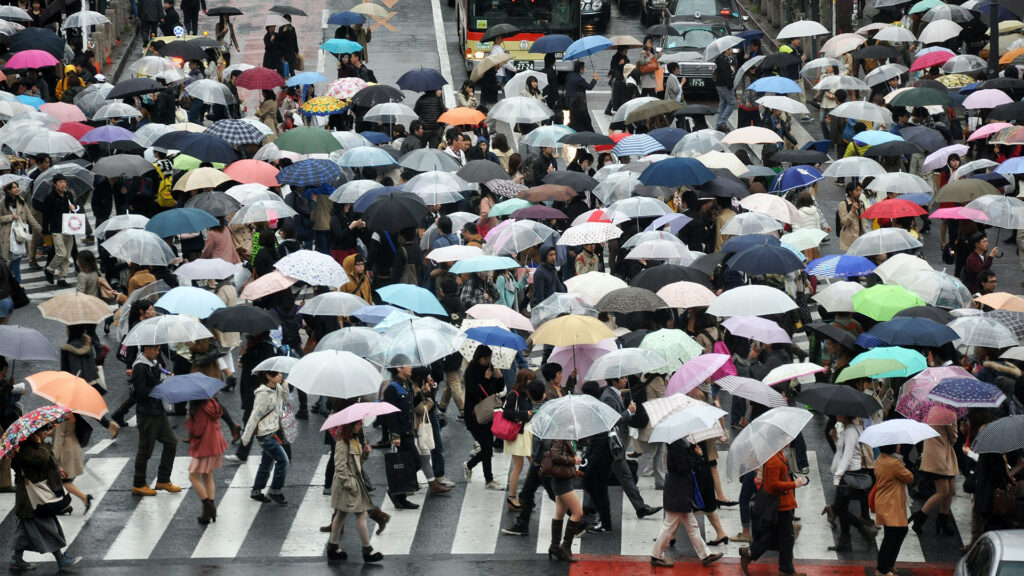Bright lights, loud music, and strong perfumes—certain stimuli can cause sensory overload. For people with attention-deficit/hyperactivity disorder (ADHD), overstimulation of sensory information can be a common experience that can make life challenging.
Overstimulation happens when your senses relay more stimuli to the brain than it can process. Although everybody experiences overstimulation, ADHD may make you more prone to it. Plus, overstimulation may trigger or worsen your ADHD symptoms.
While ADHD overstimulation can affect your daily life, certain techniques may help you regulate your nervous system so that you can manage sensory overload more efficiently. Learning your triggers and practicing healthy coping mechanisms can be helpful in maintaining positive well-being.
What is ADHD overstimulation?
Have you ever gone to a store that’s so busy you can’t even concentrate on your shopping list? Or have you ever been so overwhelmed by loud music or bright lights that you felt dizzy or nauseous?
That’s what overstimulation is.
Everybody gets overstimulated from time to time. But for people with ADHD, overstimulation may happen more frequently. “Those diagnosed with ADHD are more prone to experiencing sensory overload,” says Julia Preamplume, a licensed clinical social worker with Grow Therapy.
People with ADHD may be more prone to sensory processing disorder, a condition where your brain processes sensory input differently. Research has shown that sensory processing issues are a common feature of adult ADHD — it doesn’t just affect children with the condition.
Preamplume points out that some people with ADHD may be hypersensitive to stimuli. While this hypersensitivity can be a superpower, it can also cause you to feel overstimulated when you experience too much sensory input.
Overstimulation may also trigger certain ADHD symptoms. “Overstimulation can make it difficult to concentrate,” Preamplume says. “For example, someone clicking their pen or chewing gum near you while you are trying to work may be all you can focus on, making it difficult to complete your work.”
If you have ADHD, you might struggle to block out irrelevant stimuli, which may make it harder to focus. For example, it might be challenging to engage in conversation when a television is on in the background. An older study found that it might be because the “ADHD brain” tends to process all stimuli, all at once.
What does ADHD overstimulation look like?
It’s not always easy to recognize when you’re feeling overstimulated. For example, you may only notice that you feel anxious, unfocused, or irritable. Learning to recognize overstimulation can be a helpful first step in managing your symptoms better.
ADHD overstimulation can look like:
- Going to a mall and feeling so overwhelmed by the bright lights, loud noises, and crowds of people that you feel clammy, sweaty, and lightheaded
- Struggling to concentrate on a conversation because the texture of the tag in your shirt feels uncomfortable
- Feeling restless while sitting in your office because it’s being renovated and the noise is overstimulating
- Finding it hard to control your impulsivity because you’re at a family dinner and you feel overwhelmed by the noise, smells, and bright visuals
- Struggling to send a text because you’re overwhelmed by your phone’s brightness and the constant stream of notifications
- Fidgeting because there’s lots of activity around you
Every person experiences overstimulation differently. Different people have different triggers, symptoms, and coping mechanisms. A lot of these symptoms can also be symptoms of Autism Spectrum Disorder. A licensed professional, such as a psychologist or psychiatrist, can assist in making that differentiation.
What are the symptoms of ADHD sensory overload?
Although overstimulation can feel different to different people, it’s often characterized by an unpleasant emotional and physical reaction to stimuli.
“Some people describe it as feeling like they are crawling out of their skin, feeling anxious, irritable, and feeling like they want to cry,” Preamplume says. A good example is the uncomfortable feeling many people get when they hear nails scratching on a chalkboard — that’s how overstimulation can feel.
The symptoms of overstimulation can include:
- Anxiety
- Anger
- Confusion
- Difficulty concentrating
- Difficulty controlling behavior
- Dizziness or lightheadedness
- Fatigue
- Irritability
- Nausea
- Panic attacks
- Restlessness
- Sweating
Because it’s so unpleasant, sensory overload may cause you to “shut down” or avoid crowded spaces like concerts, gyms, beaches, or busy malls. You may also feel like you need to escape when you’re overwhelmed.
What are some signs that someone is overstimulated?
When people are experiencing sensory overload, it’s often difficult for them to communicate that to their loved ones. They may feel so overwhelmed that they struggle to express themselves. If your loved one is prone to overstimulation or sensory overload, it’s a good idea to look out for the signs.
Some signs of overstimulation are:
- Looking worried, tired, or stressed
- Snapping quickly or seeming more irritable than usual
- Struggling to engage in conversation
- Flinching, fidgeting, or having tense body language
- Seeming unsteady on their feet
In children with or without ADHD, overstimulation may result in a meltdown. This may look like a tantrum. Just as it can be difficult for adults to regulate their emotions when overwhelmed, the same can be said for children.
What can trigger overstimulation in ADHD?
Overstimulation is triggered by excessive sensory input, and each person has their own triggers. While you might be able to handle certain situations and stimuli, they may trigger sensory overload for other people.
Common triggers for sensory overstimulation include:
- Sights like bright lights, colors, crowds of people, and busy action
- Sounds, including loud noises, specific sounds, music, shouting, and constant talking
- Feelings and textures, like the feeling of certain fabrics against your skin, an uncomfortable chair, being touched by other people and even weather (heat, wind, humidity, and so on)
- Smells, including bad smells but also heavy scents like perfumes, cooking food, or the smell of gas
- Tastes are not commonly mentioned as a source of sensory overload, but it can be — especially unfamiliar or overwhelming flavors.
Internal sensations — such as feeling hungry, tired, or in pain — can also contribute to overwhelm. Racing thoughts and difficult emotions may also make it harder to handle overstimulation.
Coping with ADHD overstimulation
Managing overstimulation can start with self-awareness, which includes being aware of your triggers and learning to recognize when you’re overstimulated. From there, you can take steps to reduce uncomfortable input. It’s also helpful to practice calming techniques that soothe you in the moment.
Professional support for ADHD
Learn your triggers
Being aware of your triggers can help you manage the discomfort associated with sensory overload.
Consider taking some time to reflect on the last few times you felt overstimulated. Where were you? What were you doing? What, in particular, did you find bothersome?
You may find it helpful to journal the answers. Writing things out can help you make sense of your experiences.
Understand methods for preventing ADHD overstimulation
To prevent overstimulation, look at your triggers and consider how you can reduce your exposure to extreme or overwhelming stimuli, Preamplume suggests.
“Don’t feel like you have to ‘suck it up’; try making adaptive changes when possible,” she says. “For example, cutting scratchy tags off shirts, using fragrance free-products, using pleasant lighting in your home, limiting how much time you spend in crowded places, etc.”
Don't feel like you have to ‘suck it up’; try making adaptive changes when possible.
- Julia Preamplume, LCSW
Preventing overstimulation can also look like:
- Using earplugs or noise-canceling headphones in loud places
- Wearing sunglasses if bright lights tend to overstimulate you
- Keeping your desk/bedroom/sitting room neat and simple to prevent overwhelm
- Trying to visit malls/stores at off-peak hours to avoid crowds
- Asking to move to a desk that is further away from windows/the door
- Changing the lightbulbs in your bedroom so that they are warmer or dimmer
- Choosing clothing that feels pleasant against your skin
- Focusing on one task at a time instead of multitasking
Different people benefit from different approaches, so experiment and find out what works for you.
Reducing overstimulation can also include advocating for yourself in social situations. If you’re at a party and struggling to understand a conversation because you feel overstimulated, it’s OK to say, “Hey, do you mind if we talk in the kitchen? It’s a little loud here.” If a friend invites you to a concert, but you find crowded spaces to be unpleasant and overwhelming, it’s OK to say no and suggest a different activity.
It’s not always possible to prevent ADHD overstimulation — sometimes, overwhelm is unavoidable. But reducing uncomfortable sensory stimuli can help you pace yourself and cope better.
How do you calm down from ADHD overstimulation?
If you’re in an overstimulating situation, try to get to a calmer place, such as a bathroom. While you’re there, remind yourself that you’re safe.
To quickly calm down from ADHD overstimulation, you could try:
- Deep breathing exercises like box breathing, which involves inhaling, holding, exhaling, and holding for equal lengths of time, or 4-7-8 breathing (also called cyclic sighing), where you inhale for four seconds, hold for seven seconds, and slowly exhale for eight seconds.
- The 5-4-3-2-1 grounding technique, where you name five things you can see, four things you can touch, three things you hear, two things you could smell, and one thing you could taste.
- Visualizing a relaxing scene, whether it’s a quiet forest, an empty beach at sunset, or a cozy spot in your house.
Recovering from overstimulation can be tough. If you manage to get home, lying down in a dark room may help. Try using an eye pillow and noise-canceling headphones to block out light and noise.
To decompress, you could try mindfulness techniques like the ones mentioned above, or engage in activities you find relaxing like reading or stretching. It’s OK to need some “alone time.” Try to experiment with different calming techniques to see what works for you.
Can therapy help with ADHD overstimulation?
Yes. Therapy can help you identify your triggers, practice calming techniques, and learn how to cope with overstimulation.
Common types of therapy for ADHD overstimulation include:
- Cognitive behavioral therapy
- Occupational therapy
- Sensory integration therapy
- Mindfulness-based stress reduction
Consider speaking with a therapist who specializes in ADHD. Together with your therapist, you can learn valuable skills that can help you manage overstimulation. It can also be very beneficial to work with a therapist on techniques to manage stressors while also working with a psychiatrist and taking medication as prescribed to assist with more physiological symptoms.
Get support
If you have ADHD, you might find that you get overstimulated easily. Too much stimulation might make you feel extremely uncomfortable, and it may even trigger your ADHD symptoms.
“Struggling with ADHD and overstimulation can be frustrating. It's important to recognize that there isn't anything wrong with you if you struggle with these things.
- Julia Preamplume, LCSW
“Struggling with ADHD and overstimulation can be frustrating. It’s important to recognize that there isn’t anything wrong with you if you struggle with these things,” Preamplume shares. “Try to be patient with yourself as you navigate what works for you.”
While overstimulation can be difficult to handle, it’s possible to learn how to cope with sensory overload and manage your symptoms in a healthy way. Learning certain relaxation techniques may calm you in the moment, and understanding your triggers can help you manage overstimulation effectively.
Get support by working with a professional therapist. Our search tool makes it easier to find a therapist in your area who takes your insurance and specialize in ADHD.

